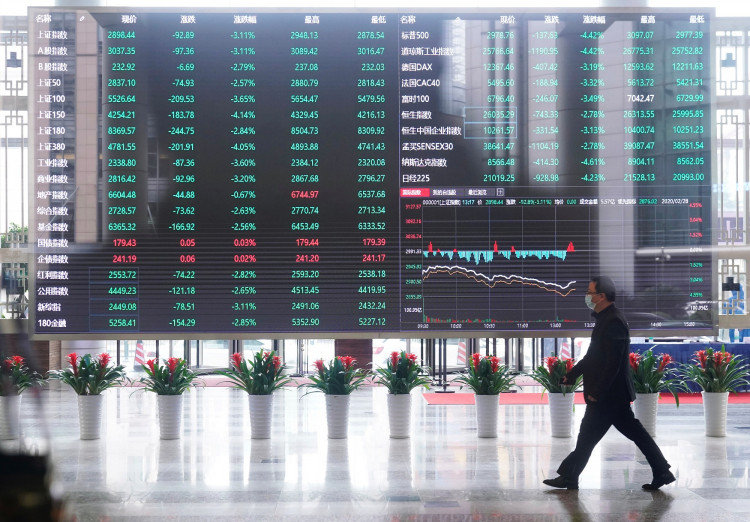China's Semiconductor Manufacturing International Corp. has told the Hong Kong Stock Exchange it is facing export restrictions from the U.S. and has undertaken "preliminary exchanges" with the U.S. Bureau of Industry and Security.
SMIC shares fell 5% in Hong Kong - adding to its 27% overall drop in September.
Rumors Confirmed
Reuters reported the U.S. government had imposed restrictions upon China's biggest semiconductor manufacturer, stating the exports to SMIC may pose an "unacceptable risk" of military use in China.
Though SMIC had responded that it had not received any notice from the U.S. Department of Commerce yet, a few SMIC suppliers had been notified by communications from the U.S. Bureau of Industry and Security requiring them to obtain a license before continuing to supply equipment, accessories, raw materials and service to SMIC, the company said.
"As for the export restrictions, the company has undertaken preliminary exchanges with the U.S. BIS," SMIC said, without disclosing the details. It also asserted it has been operating in compliance with the laws and regulations of all relevant jurisdictions.
The company is assessing the effect of the export restrictions, as delayed supply of exported equipment and materials from the U.S. could cause adverse effects upon its production and operations.
Analysts said the export restrictions will also affect SMIC's business and cooperation with its international clients including those based in the U.S. A quarter of SMIC clients are said to be U.S. companies. The biggest client it has been providing chips to is Huawei Technologies with Qualcomm taking second place.
Reaching The 7-Nanometer Hurdle
Established in 2000, SMIC has since become the largest chipmaker in mainland China and has been attempting to match the foundry capabilities of Samsung and Taiwan Semiconductor Manufacturing Co.
Samsung and TSWC currently are the only two manufacturers in the world capable of making cutting-edge 7 nanometer chips, which are in strong demand for telecom networking equipment, cloud computing and flagship smartphones.
Developing 7 nanometer manufacturing capabilities is an extremely challenging mission, requiring high investment and many years of research and development. The latest generation of lithography machines are a critical component in the chip manufacturing process.
The Trump administration, since 2018, has mounted a campaign to prevent SMIC from accessing some of the latest cutting-edge manufacturing equipment.
Aside from mandating that Samsung and TSMC stop fulfilling orders to Chinese companies, it pressed the Netherland government to ban semiconductor equipment company ASML Holdings, the global leader in lithography, from selling its most advanced machine to a Chinese customer.
Though ASML has never publicly disclosed the identity of the Chinese customer, Nikkei Asian Review reported that it is China's biggest chipmaking specialist, SMIC.
To date, SMIC still doesn't own a 7 nanometer manufacturing process lithography machine but is able to continue producing 14 nm chips.
Seeking Suppliers
Bolstered by governmental incentives to develop the chip industry, SMIC raised $6.6 billion in July in China's tech-centric STAR Market as well as support from state firms, aiming to double its spending to develop more advanced chips this year.
Under these export restrictions, analysts said, the worst scenario would be all SMIC's suppliers stop fulfilling orders. U.S.-based suppliers including Applied Materials, Lam Research Co, KLA Corp will likely be restricted from selling manufacturing machinery to SMIC. Japan's Tokyo Electron and Advantest and Netherland's ASML Holdings might also halt sales to SMIC.
China's Customs statistics showed that China was only 30% self-sufficient and imported IC chips worth $304 billion in 2019.
The country aims to increase its integrated chip self-sufficiency rate to 70% by the year 2025, according to statistics released by the State Council in August.





